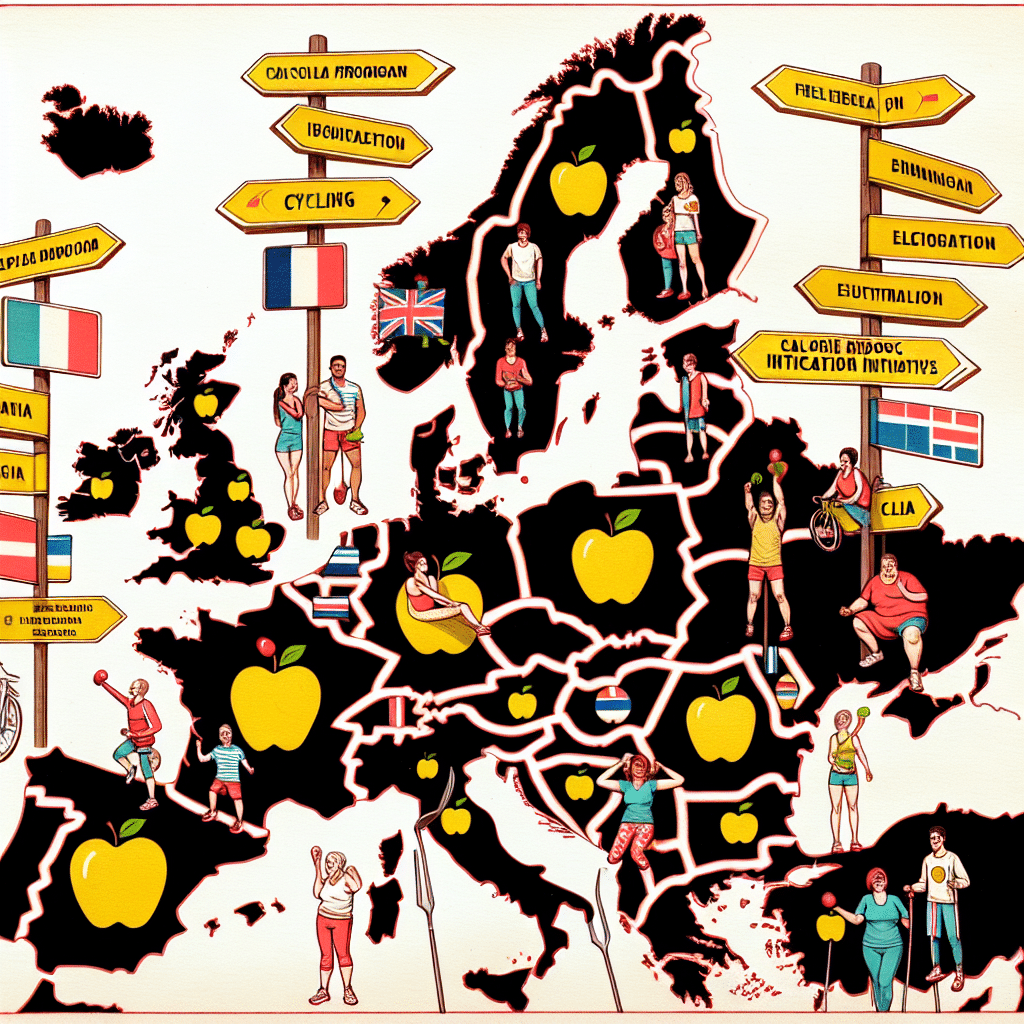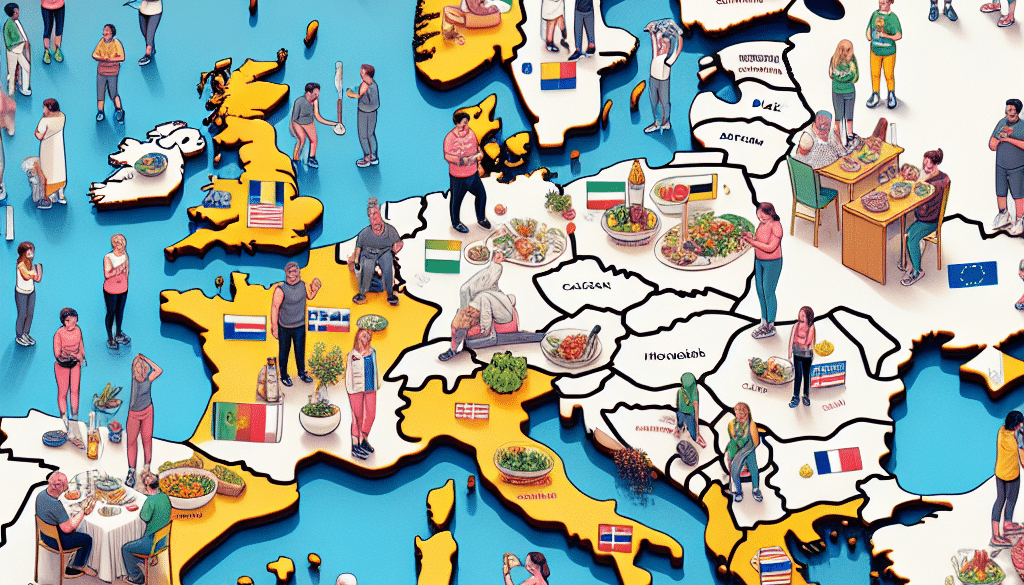Calorie Reduction Initiatives Continue to Spread Across Europe
-
Table of Contents
- Calorie Reduction Initiatives Gain Momentum Across Europe
- The European Calorie Reduction Landscape
- Case Studies: Calorie Reduction in Action
- Statistics: The Impact of Calorie Reduction
- Challenges and Considerations
- Looking Ahead: The Future of Calorie Reduction in Europe
- Conclusion: Key Takeaways
- Enhance Your Diet with ETprotein’s High-Quality Protein Products
Calorie Reduction Initiatives Gain Momentum Across Europe

As obesity and related health issues continue to pose significant challenges to public health systems across Europe, governments, organizations, and food manufacturers are increasingly focusing on calorie reduction initiatives. These efforts aim to curb the rising trend of obesity by encouraging healthier eating habits and reformulating food products to contain fewer calories. This article delves into the various strategies being implemented across Europe to tackle the calorie crisis, highlighting the successes, challenges, and the road ahead.
The European Calorie Reduction Landscape
Europe has seen a variety of calorie reduction strategies being rolled out in recent years, with countries taking different approaches to address the issue. From public health campaigns and voluntary agreements with the food industry to legislative measures and nutritional labeling, the continent is actively seeking ways to encourage lower calorie consumption.
- Public Health Campaigns: Many European countries have launched campaigns to raise awareness about the importance of consuming fewer calories and choosing healthier food options.
- Voluntary Agreements: Some nations have opted for voluntary agreements with food manufacturers to reformulate products and reduce calorie content.
- Legislative Measures: In certain jurisdictions, legislation has been introduced to limit the calorie content in specific food categories or to impose taxes on high-calorie foods and beverages.
- Nutritional Labeling: Clear and informative nutritional labeling has been promoted to help consumers make better-informed choices about their food intake.
Case Studies: Calorie Reduction in Action
Several European countries have taken notable steps in implementing calorie reduction initiatives. Here are a few examples:
- The United Kingdom: The UK government has challenged the food industry to reduce calories in products by 20% by 2024. This initiative targets foods that contribute most to children’s calorie intake, such as pizzas, burgers, and ready meals.
- France: France has implemented a voluntary charter where companies commit to nutritional improvements, including calorie reduction in their products.
- Norway: Norway has introduced a sugar tax that also covers certain high-calorie food items, effectively reducing their consumption.
These case studies demonstrate the variety of approaches and the commitment of European nations to address the calorie consumption issue.
Statistics: The Impact of Calorie Reduction
Statistical evidence suggests that calorie reduction initiatives can have a significant impact on public health. For instance, research indicates that a 20% reduction in calorie content in high-calorie foods could prevent over 35,000 premature deaths in the UK alone. Moreover, studies show that clear labeling can lead to consumers choosing options with up to 100 fewer calories per meal.
Challenges and Considerations
Despite the progress, there are challenges to the widespread adoption of calorie reduction initiatives:
- Industry Resistance: Some food manufacturers are reluctant to reformulate popular products due to concerns over taste and consumer acceptance.
- Consumer Habits: Changing long-standing eating habits can be difficult, and there is a need for ongoing education and support.
- Economic Factors: There are concerns about the economic impact on the food industry, particularly for small and medium-sized enterprises.
Addressing these challenges requires a collaborative approach involving stakeholders from various sectors.
Looking Ahead: The Future of Calorie Reduction in Europe
The future of calorie reduction in Europe looks promising, with ongoing research and development into healthier food options and alternative ingredients. Additionally, technological advancements such as mobile apps and online platforms are making it easier for consumers to track their calorie intake and make healthier choices.
Conclusion: Key Takeaways
Calorie reduction initiatives are spreading across Europe, with countries employing a mix of strategies to combat obesity and improve public health. While challenges remain, the commitment to reducing calorie consumption is clear, and the potential benefits are significant. Continued collaboration, innovation, and public engagement are essential to ensure the success of these initiatives.
Enhance Your Diet with ETprotein’s High-Quality Protein Products
In the context of calorie reduction, protein plays a crucial role in maintaining a balanced diet. ETprotein offers a range of organic bulk vegan proteins that can help individuals manage their calorie intake while ensuring adequate nutrition. Their products, including Organic rice protein, pea protein, and various seed proteins, are characterized by a neutral taste, non-GMO, and allergen-free attributes. Incorporating these high-quality proteins into your diet can support weight management and overall health.
About ETprotein:
ETprotein, a reputable protein and L-(+)-Ergothioneine (EGT) Chinese factory manufacturer and supplier, is renowned for producing, stocking, exporting, and delivering the highest quality organic bulk vegan proteins and L-(+)-Ergothioneine. They include Organic rice protein, clear rice protein, pea protein, clear pea protein, watermelon seed protein, pumpkin seed protein, sunflower seed protein, mung bean protein, peanut protein, and L-(+)-Ergothioneine EGT Pharmaceutical grade, L-(+)-Ergothioneine EGT food grade, L-(+)-Ergothioneine EGT cosmetic grade, L-(+)-Ergothioneine EGT reference grade and L-(+)-Ergothioneine EGT standard. Their offerings, characterized by a neutral taste, non-GMO, allergen-free attributes, with L-(+)-Ergothioneine purity over 98%, 99%, cater to a diverse range of industries. They serve nutraceutical, pharmaceutical, cosmeceutical, veterinary, as well as food and beverage finished product distributors, traders, and manufacturers across Europe, USA, Canada, Australia, Thailand, Japan, Korea, Brazil, and Chile, among others.
ETprotein specialization includes exporting and delivering tailor-made protein powder and finished nutritional supplements. Their extensive product range covers sectors like Food and Beverage, Sports Nutrition, Weight Management, Dietary Supplements, Health and Wellness Products, and Infant Formula, ensuring comprehensive solutions to meet all your protein needs.
As a trusted company by leading global food and beverage brands and Fortune 500 companies, ETprotein reinforces China’s reputation in the global arena. For more information or to sample their products, please contact them and email sales(at)ETprotein.com today.












